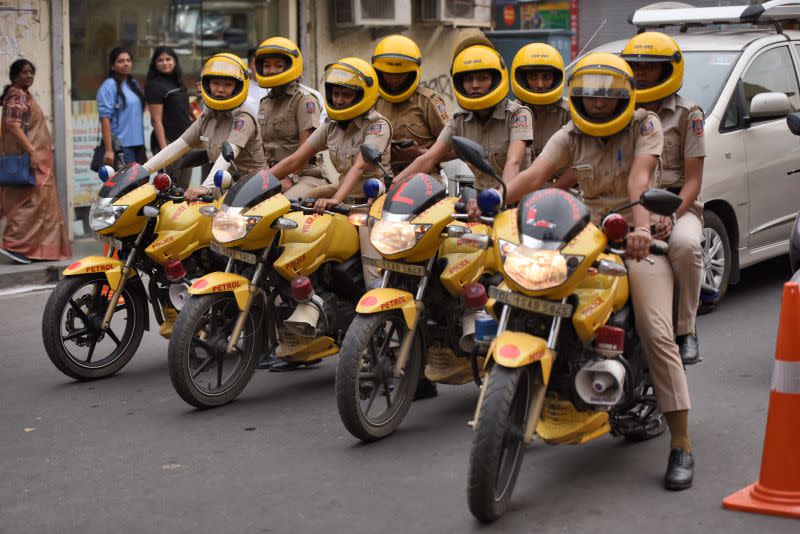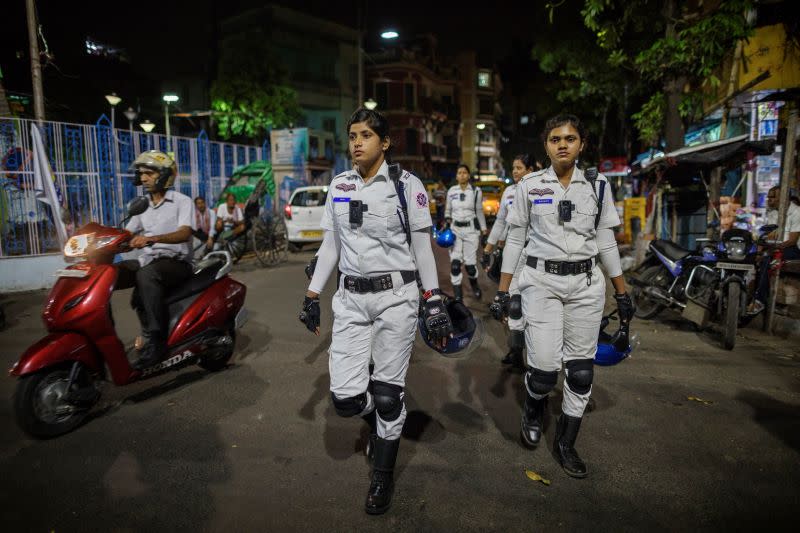Curbing Crimes Against Women: Know More About India’s Women-Only Police Squads
The India Justice Report 2019 reveals that women account only for 7 percent of the total police workforce of 2.4 million. The report was commissioned by Tata Trusts, with the help of organisations like Centre for Social Justice, Common Cause, Commonwealth Human Rights Initiative, DAKSH, and Tata Institute of Social Sciences.

The report stated, ”Even if states commit to increasing women's representation at a modest additional 1 percent per annum, it will take most of them and institutions decades to reach even to this aspirational 33 percent.” Based on the report, Maharashtra will take 14 years, Kerala will take 30 years, Madhya Pradesh will take 294 years while Karnataka might take 120 years to achieve the magical figure of 33 percent representation.
Many states have made it a point to add small cohorts of women-only squads to make women in the area feel safe. Here are some of them:
Rajasthan
Jaipur added an all-woman team of 52 cops in 2018 who will be guarding 200 checkpoints across the pink city. These cops are trained in martial arts, equipped with batons and wireless sets. The women constables will be patrolling the streets from 7 am to 10 pm, mainly outside colleges, temples, schools, malls, parks, and other public places.
Women in the city can even connect with these cops through WhatsApp in case of emergencies. The women cops have been trained for months to understand the vagaries of the law. The female constable squad has been equipped with 26 two-wheelers for patrolling. Each of these vehicles has wireless sets, first-aid kits, and fibre canes. Apart from reducing crime against women, the intent is also to make sure that no cases against women go unreported.
If the patrolling squad finds a woman being harassed, they will immediately notify the control room. "The idea is to help girls and women who are troubled by men outside schools, colleges, and other public places. These cops have been intensely trained for more than four months,” said Sanjay Agarwal, Commissioner of Police, Jaipur. He also added that this will also give the women in the police force a more visible role.
Kerala
The government of Kerala started the ‘Pink Beat’ initiative in 2016. It consists of a team of specially trained female police personnel who are authorised to man public places and transport networks in the capital city of Thiruvananthapuram.
A women-only police squad was deployed across the state of Kerala to assist in dealing with the coronavirus pandemic, after a test run in Thrissur. The women officers wear colour-coded helmets and drive Royal Enfield motorcycles to help senior citizens, women, children and those in the migrant camps.
Tamil Nadu
The state of Tamil Nadu launched ‘Amma Patrol’ in 2019 which provides immediate redressal to women-related issues. Named after the late CM J Jayalalitha, the ‘Amma Patrol’ squad received 40 pink Toyota Innova cars with assistance from the Nirbhaya fund.
Karnataka
The government of Karnataka launched initiatives like Pink Hoysalas and Suraksha panic app for the safety of women. Pink Hoysalas with women staff will be stationed at sensitive locations. Women in distress can hold the phone in front of the attacker, and a 10-second video will be recorded. The control room will receive an alarm along with the video. Alternatively, women can also press the power button five times if they are looking for help. The noble initiative has met with little success as there is a lack of female personnel in the city’s police force.

West Bengal
The city of Kolkata launched SHE patrol, a first-of-its-kind initiative in the city. The all-women squad is dedicated to women’s security and most of them are of sub-inspector ranks, while there will be assistant sub-inspectors and constables in the mix. The female police officers were equipped with new scooters to cover large parts of the city.
Delhi
Delhi had the honour of being the first police force in the country to have an all-women SWAT team, in 2018. After a training period of more than 15 months, 36 women constables from northeastern states have been inducted into the squad. From handling terror strikes to the hostage crisis, these women have been extensively trained. They have been trained in handling a wide array of weapons, and are experts at unarmed combat, ambush and counter-ambush, jungle and urban operations.
The importance of an all-women squad is to reassure women on the streets that help is nearby. Many women are still afraid to go to a police station to report a crime like rape or sexual harassment, due to the largely male police force.
(Edited by Kanishk)


